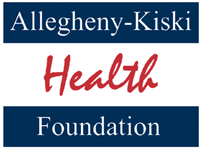When most people think of heart disease or heart attack symptoms, shortness of breath, chest pain, and an irregular heartbeat often come to mind. However, these classic symptoms are not the only indicators of heart problems, especially for women. Take a look at these four lesser-known signs of a heart attack and talk to your doctor if you’re experiencing any of them.
1. Jaw Pain
Unexplained pain in your jaw, teeth, or other areas of your face and head could indicate an underlying heart problem or may even be an early warning sign of a heart attack. Along with nausea and and vomiting, this heart attack symptom is more commonly seen in women than in men.
2. Abdominal Pain
Another heart attack sign that’s more common in women is abdominal pain or pressure. Some people describe feeling as though an elephant is sitting on their stomach. Because stomach pain and cramps can also be signs of many other ailments, it can be difficult to discern abdominal pain caused by heart disease from other problems.
Any time you’re experiencing severe abdominal pain or pressure, contact your doctor to be on the safe side.
3. Excessive Sweating
If you haven’t been working out or otherwise exerting enough energy to break out in a sweat, excessive sweating could be a heart attack symptom, especially if it’s accompanied by chest pain.
4. Fluid Retention in Your Ankles
Ankles that appear to be swollen and bloated could be a sign of heart failure or other serious conditions. Don’t ignore this symptom — check with your doctor to find out what could be causing the swelling and how to best treat it.
While any one of these symptoms may not necessarily be indicative of heart disease or a heart attack, it’s important to familiarize yourself with them so you can be on the lookout for combinations of these lesser-known warning signs. If you’re experiencing any of these four symptoms, it’s a good idea to check in with your doctor to make sure they aren’t caused by an underlying heart condition.
If you have a family history of heart disease, you’ll want to pay close attention to your cholesterol levels and make sure you’re getting enough regular exercise to boost your heart health and minimize your risk factors.






